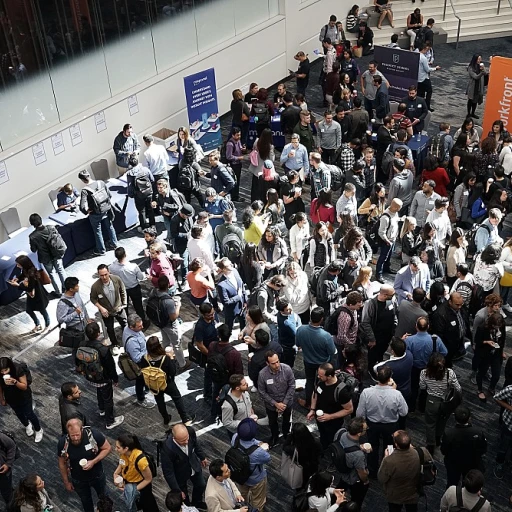
Purpose of a Preliminary Interview
Introduction to Initial Screening
In the recruitment process, a preliminary interview serves as a crucial initial step in the journey towards landing a job. Often considered a screening interview, its primary purpose is to sift through candidates to determine which ones are the most viable for further consideration. This stage is essential for recruiters and hiring managers as it helps them identify individuals who not only meet the basic job requirements but also align with the company culture. Preliminary interviews are designed to assess candidates’ skills, experience, and overall fit for the position. During this process, recruiters aim to gather more information about a candidate's background and expertise. These initial assessments are typically conducted via phone or video interviews, which allow for efficient pre-screening without additional logistical challenges. The screening interview is also about evaluating a candidate's potential contributions to the company. This is where interview questions delve into not just technical abilities but also a candidate's cultural fit, offering insights into how they might thrive within the company's environment. These insights setting the tone for what might come in subsequent interviews. Understanding the role of preliminary interviews allows candidates to prepare effectively, ensuring that they are not only showcasing their qualifications but also demonstrating how they can be a valuable asset to the company. This preparatory step is what helps influence hiring decisions, as it strengthens a candidate's position from the very start of the interview process.Key Elements of a Preliminary Interview
Core Components That Define a Preliminary Interview
In the preliminary stage of the hiring process, the interview structure is crafted to ensure a comprehensive yet concise evaluation of a potential candidate's suitability. Here's a closer look at what usually comprises this preliminary step.- Job Role Understanding: This interview serves as an opportunity for candidates and hiring managers to discuss the position’s basics. It's crucial for candidates to express their understanding of the role and how their skills align with the job requirements.
- Assessment of Skills and Knowledge: Recruiters use preliminary interviews to gauge a candidate's core skills and job-related knowledge. While this isn't as extensive as later stages, it aims to eliminate those who don’t meet the essential job criteria.
- Cultural Fit Evaluation: Determining a candidate's fit with the company culture is another key aspect. Employers seek candidates who will harmonize with existing teams and share the company values, which often comes out during pre-interviews.
- Exploration of Experience: Candidates should prepare to discuss their previous job experiences. Recruiters will likely ask candidates to relate past roles to the current job opening, highlighting perceived strengths and weaknesses.
- Pre-Screening Interview Questions: Although simpler than full interview rounds, these questions aim to quickly identify candidates' suitability. Hiring managers design them to be efficient in assessing core competencies and motivations.
Preparing for a Preliminary Interview
Steps to Excel in Preliminary Interviews
The interview process can be daunting, but preliminary interviews serve as an important first step. Preparation is key for candidates hoping to make a memorable impact on recruiters. Here's how to set yourself up for success during this crucial stage of the hiring process:- Research the Company: Familiarize yourself with the organization's mission, values, and culture. Understanding what the company stands for not only helps you tailor your responses but also allows you to evaluate if it's a suitable environment for you.
- Understand the Role: Make sure you comprehend the job description thoroughly. Be ready to discuss how your skills and experience align with the position's requirements. Think about your past experiences where you demonstrated the skills that the job demands.
- Prepare Your Responses: Reflect on common preliminary interview questions, such as "What interested you in this position?" or "How do you fit into our company culture?" Prepare concise and compelling answers that showcase your fit and enthusiasm.
- Practice Makes Perfect: Conducting mock interviews with a friend or mentor can be invaluable in boosting your confidence and fine-tuning your responses. Consider practicing a video interview to get comfortable with the format since remote interviews are becoming increasingly common.
- Review Your Resume: Ensure you know your resume inside and out, as interviewers may ask questions related to your previous jobs and achievements. Your ability to connect your past experiences with the prospective role can significantly impress hiring managers.
- Dress Appropriately: First impressions matter, so choose an outfit that reflects the company's dress code and professional etiquette. Even if the preliminary meeting is a pre screening or video interview, dressing appropriately can put you in the right mindset.
- Prepare Thoughtful Questions: Asking insightful questions about the company, team dynamics, or next steps in the recruitment process demonstrates genuine interest and can help you determine if it’s the right fit for you.
Common Mistakes to Avoid
Avoiding Common Pitfalls in Preliminary Interviews
Making a great impression during a preliminary interview is crucial, as it sets the tone for your entire recruitment process. However, candidates often fall victim to a few common mistakes that could hinder their chances of advancing further. Familiarizing yourself with these pitfalls can help you navigate the interview stage more successfully.
- Insufficient Preparation: A lack of preparation is a prominent misstep candidates can make. Being unfamiliar with the job description, company culture, and role expectations can lead to vague or irrelevant responses. Reviewing the preliminary interview questions likely to be asked can aid in your readiness.
- Overlooking Company Culture Fit: Understanding the company's culture is vital to demonstrating your fit for the position. Candidates who ignore the cultural aspects of the employer may struggle to convey why they are a good match, impacting their potential hiring.
- Providing Inadequate Examples: Employers assess candidates based on specific skills and experiences. Thus, lacking concrete examples or anecdotes from your past job experience can prevent recruiters from fully appreciating your qualifications.
- Neglecting to Highlight Soft Skills: Beyond technical skills, recruiters evaluate communication, adaptability, and team interaction capabilities during screening interviews. Not demonstrating these soft skills can reduce your chances of moving past the preliminary phases of the selection process.
- Poor Interview Etiquette: Basic interview etiquette, such as punctuality, active listening, and polite communication, are essential. Overlooking these can portray a lack of professionalism.
Understanding these frequently observed mistakes can improve your candidate experience and optimize the potential of your pre-interview participation. Be prepared, articulate your experiences effectively, and align with the company values to set yourself apart from other candidates.
Role of HR in Preliminary Interviews
The Influence and Contributions of HR During Initial Interviews
The role of HR during preliminary interviews is pivotal for both the company and the candidates. As the custodians of the recruitment process, HR professionals undertake the essential task of pre-screening to ensure that the potential candidates align with the company's needs and culture.- Screening and Initial Assessment:
- Determining Cultural Fit:
- Providing Feedback:
- Coordinating with Other Stakeholders:













